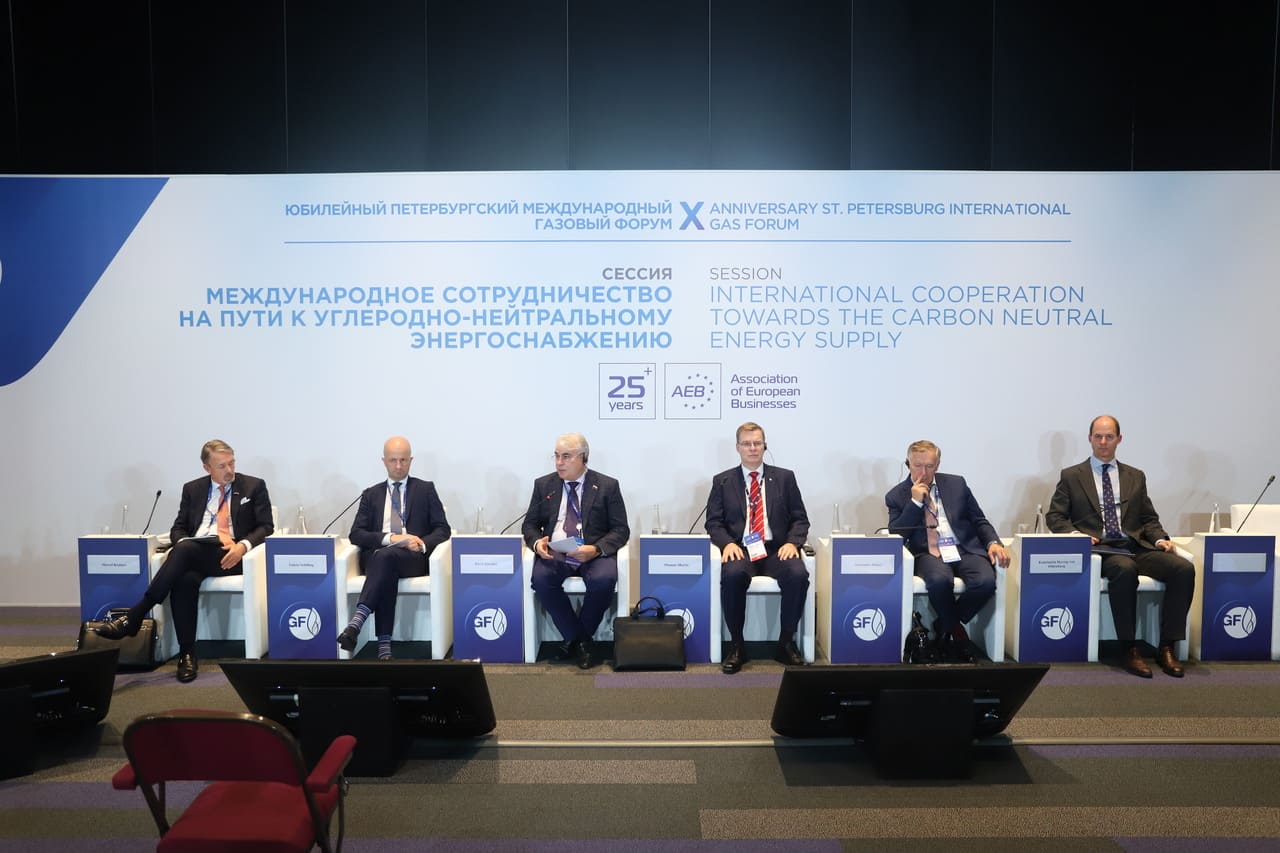
In the next decades, natural gas will be the most cost-efficient energy source.
In the next 20 to 30 years, hydrocarbons will occupy over 50% of the global energy market – this was the conclusion made by the participants at the session INTERNATIONAL COOPERATION TOWARDS THE CARBON NEUTRAL ENERGY SUPPLY during the 10th St. Petersburg International Energy Forum.
By 2025, the Russian state intends to export 0.2 mln tons of hydrogen, which by 2035 is expected to be 2 to 12 mln tones and 15 to 50 mln tons by 2050 – this information was shared by Pavel Sorokin, Deputy Minister of Energy of the Russian Federation. According to him, global investments to the hydrogen energy are expected to be 70 to 150 bln US dollars.
Hans Coenen, Vice-President Corporate Strategy and Business Development, N.V. Nederlandse Gasunie, gave an example of such investments. He explained that their company had already invested 7.5 bln Euros to the world’s first hydrogen transportation infrastructure. “We are going to use some of the networks currently intended for natural gas. Our neighbors will connect to it one by one, and we expect to complete this project by 2026 or 2027,” said Mr. Coenen.
Pavel Zavalny, Chairman of the State Duma’s Committee for Energy, believes that the most profitable way of hydrogen production is with natural gas, as its reserves throughout the world come to about 200 trillion cubic meters. “We intend to occupy about 20% of the global hydrogen energy market. The first thing to do is to switch to hydrogen-methane. This mixture contains about 10% of hydrogen and can facilitate a twofold CO2 emission reduction,” he explained. At the same time, Mr. Zavalny made a point that there are almost no regulations in the field of hydrogen energy, which prevents switching transport to this fuel type.
Further, Russian authorities believe nuclear energy has a certain potential. “Carbon energy accounts for barely 15% from the potential that nuclear energy has. It can ensure energy reserves for thousands of years to come. Today, Russia is the only country in the world to use an electronic fast-neutron reactor,” specified Pavel Zavalny.
He elaborated that Russia uses the hydro-energy potential only to some 20%. That is why the Russian state is going to build new hydro-power stations in Siberian rivers and export the energy generated there to China that suffers from energy deficiency.
The fastest way of carbon emission reduction is transformation from coal generation to natural gas, thinks Alexander Ishkov, Head of Department, Gazprom. The share of coal in the global energy comes to 43%, while world CO2 emission amounts to 9.8 bln tons.
“Global energy can reduce CO2 emissions by 4.4 bln tons, which is by 33%, merely by changing coal with methane. 4.4 bln tons of CO2 is more than all the emissions in the EU and Russia together. If Germany changes 27% of their carbon energy to gas, they will be able to totally decarbonize their industry,” Alexander Ishkov declared. Today, gas is the most cost-efficient energy vector. Its recovery and transportation cost to energy ratio (EROI) comes to 28 – solar energy has 17, wind energy has 16, and hydrogen has less than 1 – this was the statistics announced by Mr. Ishkov.
According to Konstantin Herzog von Oldenburg, Managing Director, VNG Handel & Vertrieb GmbH, Germany takes against carbon and nuclear energy and is going to curtail these sectors by 2030. “I am not a politician but a salesman. We regard hydrogen as a commodity and see certain challenges. We will keep supplying gas to Belgium and Germany. It won’t cease until politicians decide to state it has ceased,” said Konstantin Herzog von Oldenburg.